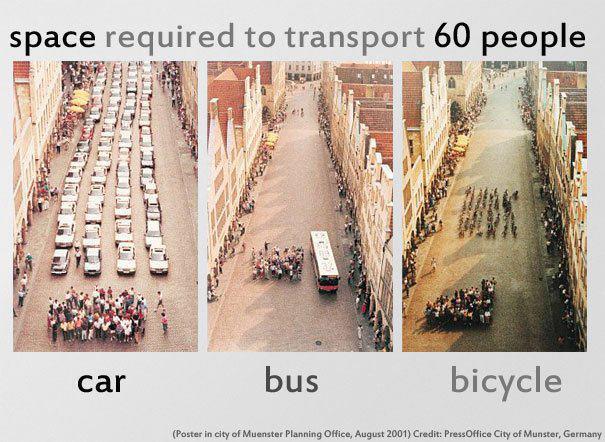cars
Having just gone back to the United States for a week, here are some reasons why I no longer live ther. I didn't move abroad because of these reasons, but now that I'm living in Vietnam, these are some of the reasons why I won't move back.
1. Lawn-mowing. I'm allergic to not only the job of mowing lawns and the grass clippings and plant matter that gets tossed into the air, but now the sound itself puts me on edge. Somehow all the dust in the air and sound of motorbikes in Saigon doesn't have the same effect.
Read the rest of this article...This is in response to a recent news article quoting an idiot Vietnamese-German "traffic expert" on a new traffic reduction proposal (read article).
Reducing traffic in Vietnam's big cities is as simple as this: limit private automobiles (cars), increase public transportation (busses and trains with grade separation). Focus on cars because:
- Cars disproportionately increase traffic problems.
- Compared to pedestrians, bicyclists, and motorbikes, they take up much more space per traveler.
- They are bulky and less maneuverable, so they force everyone else to stop, slow down, be blocked, and block others.
- Vietnam's roads are generally not wide enough for two cars to pass each other without causing traffic to slow down or stop.
- Many roads and alleys are hardly wide enough for a car yet they are allowed to use them while blocking all other traffic.
- Roads in Vietnam are constantly under construction which often means reduced width of lanes and more bottlenecks for cars.
- While both bikes and cars often stop in intersections after the light turns red, a car jamming an intersection causes a much bigger traffic jam, because unlike bikes it's much harder to go around them. So one car blocking an intersection means other cars who now have the right of way can't move.
- There is generally no parking for cars so they end up illegally parking on busy streets, reducing capacity, or they drive around idly increasing traffic.
- Cars and bikes often use each others lanes illegally, but blockage caused by a car in a bike lane is much more severe.
- Cars are a major culprit causing traffic jams wherever they are. The 500,000 cars in Saigon cause a lot of traffic congestion.
Clearly, taking one car off the road is more effective than many bikes for reducing traffic congestion. It's also a more equitable use of resources like land and fuel.
So-called traffic expert Nguyen Minh Dong says an odd-even license plate number scheme for keeping cars out of the city center every other day wouldn't work, mainly arguing about pollution and ignoring congestion. The problem at hand is congestion, and the corollary to his argument is that we should all buy cars in order to reduce pollution. Absurd.
Pollution would be better addressed by encouraging public transit, bicycles, walking, and affordable housing close to jobs.
But odd-even rationing has been tried many times before successfully. In nearby Guangzhou, an odd-even scheme kept 800,000 cars off the road over two months. While in other countries where cars are cheap it may make sense to buy a second car just to drive it on other days, cars are expensive here and incomes are much lower. It's ridiculous to assert that most would buy another car rather than use ways that almost all other Vietnamese take to travel, and it's ridiculous to say that an odd-even scheme would therefore not be effective.
The article argues that the "most important mission of transport police officers is to control traffic." I think that enforcing an odd-even scheme sounds a lot like controlling traffic. They then go on to argue that such a scheme "may cause" corruption. In Vietnam, enforcing any and all traffic rules causes corruption. Is that a reason to make it legal to run red lights?
There are many ways to reduce the number of cars. This reporter conveniently ignored all of them so I'll suggest a few.
- We should restrict cars from roads that are too narrow for them and use physical barriers to stop them from entering.
- We could make and keep roads one-way for cars but bidirectional for other traffic.
- We can add tolls around the core.
- We should add barriers to prevent cars from taking over bike lanes, while still making all lanes accessible to bikes.
- We should also be considering London's congestion charging (with free routes through the city to discourage long avoidance routes) or Singapore's electronic road pricing.
- We should NOT continue reducing fees for cars.
- We should NOT be misled into thinking that building more highways leads to less congestion. We should learn that lesson from the US.
And finally, we should NOT just sit around and do nothing. Market forces will mean increasing car ownership in Vietnam for an infrastructure that is overloaded by them as it is. I haven't even begun to address the taxi and busses impact on traffic! That will be a future post...

Recent comments
1 year 11 weeks ago
2 years 3 days ago
2 years 1 week ago
2 years 3 weeks ago
2 years 19 weeks ago
2 years 19 weeks ago
2 years 19 weeks ago
2 years 19 weeks ago
2 years 19 weeks ago
2 years 19 weeks ago